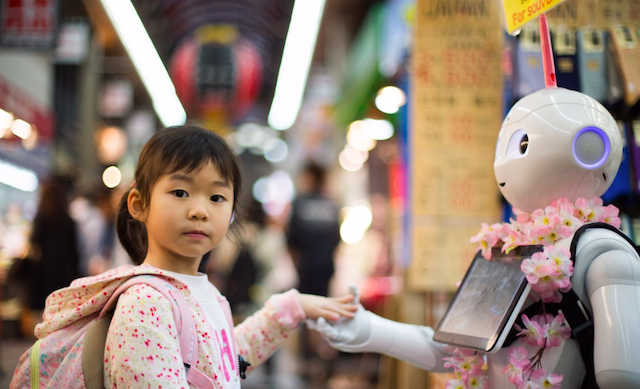“Anything you can do I can do better, faster and cheaper.” A news announcer makes this enticing promise on TV, who believe it or not, is a robot.
This just might be the beginning of the fourth industrial revolution. Is artificial intelligence going to take over the significant aspects of our lives and eventually replace humans? These questions started in me ten years ago, when a family member took me on tour inside a research and technology institution in Asia.
If you look at the potential of this industry, then the answer is yes, it is possible. The possibility of robots replacing humans is very likely. The Robots we have now, the development that has been done in creating artificial intelligence, it could be said that robots can take over 52% of the current workload in less than a decade. We have robots that can give legal advice, read the news over TV. Moreover, now robots have started to become citizens of countries with Sophia being the first robot citizen of Saudi Arabia.
As of now, robots have taken up about 29% of our jobs or more, and according to the World Economic Forum, this will double up by 2025, making it almost more than 50% of our jobs. This trend can be named as “Robotisation of the Workplace.” This leads to a dangerous trend of forcing humans out of work; nearly one billion people could be left jobless by 2030. This is a subject of grave concern, as human resources are an essential part of any country. They are the greatest assets of any state, so efficient utilization of human resources is critical.
No doubt, our lives would be more convenient than ever but is the convenience coming from our unemployment and other concerns, worth it? Robots are going to be everywhere; they might control our lives or the next generation.
I await with trepidation to future changes. Technology may bring some positive outcome and make things more accessible, but it will also change us humans in unexpected ways and create new future problems.
From my 2016 Journal
